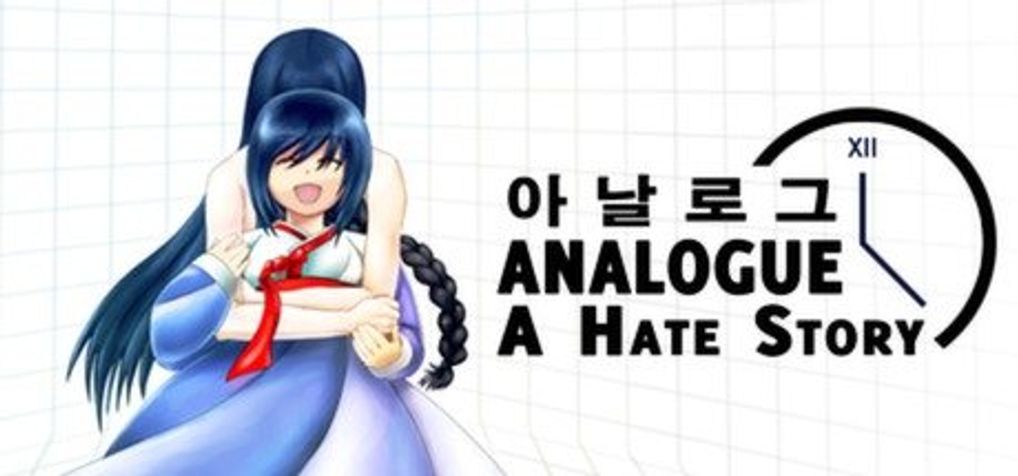Analogue
It seems inevitable that I would get to a visual novel. Stories are, after all, one of my favourite parts of any game, and a visual novel is, in theory, almost pure story. Analogue: A Hate Story is no different. It is a story with a UI thrown on top and the light pressure to read, engage, and solve a mystery.
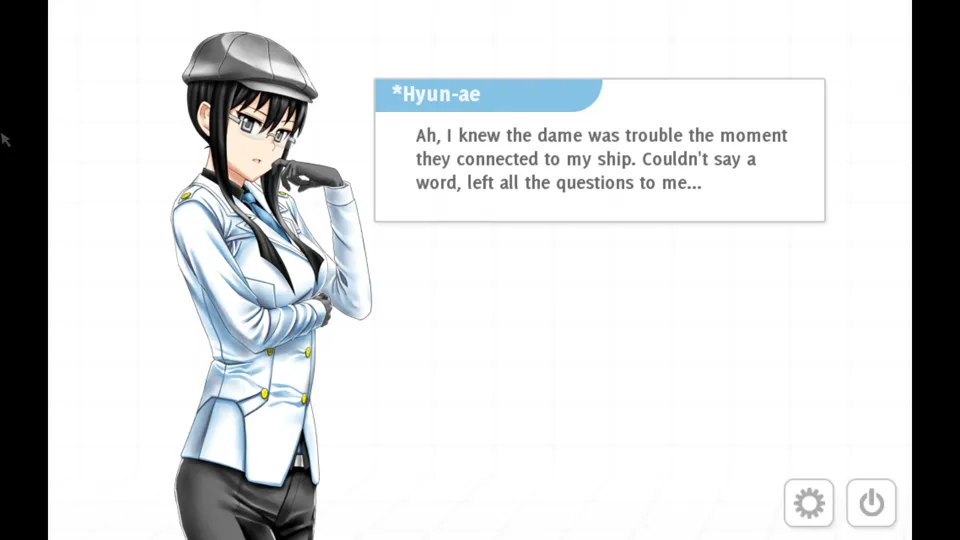 And solve a mystery we shall.
And solve a mystery we shall.
Analogue: A Hate Story tells the story of the Mugunghwa , a colony ship that, after hundreds of years, has re-emerged from space, its crew dead and with no sign of what happened to it. You play as investigator tasked with figuring out what happened. After connecting to the ship, the investigator is greeted by an endlessly curious AI named *Hyun-ae, and a long series of logs. The investigator can show logs to the AI, unlocking more and more elements of the ship and gradually unraveling the mystery of the Mugunghwa.
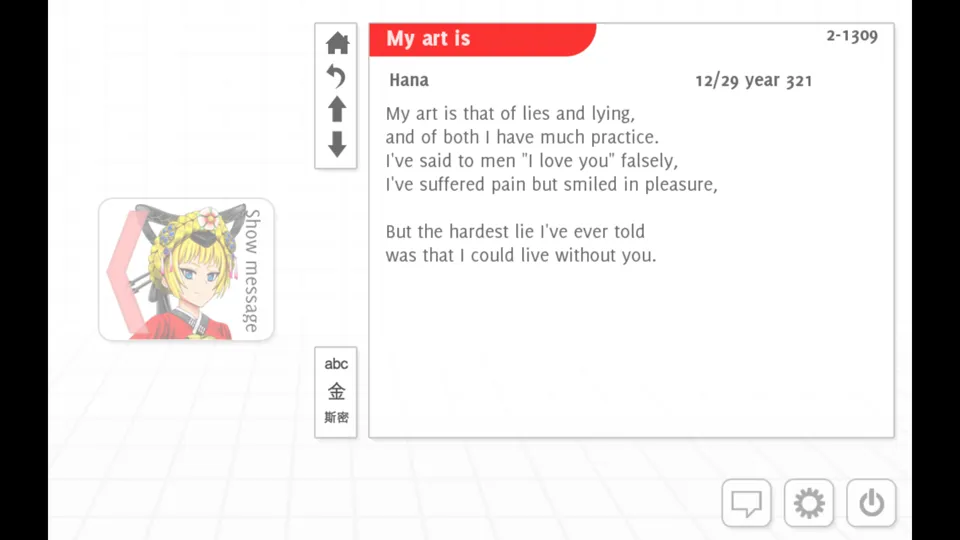 Some logs are more interesting than others.
Some logs are more interesting than others.
Like many visual novels, the gameplay isn’t really the point. Analogue’s gameplay settles into a steady loop more or less as soon as the first AI comes online. The investigator reads a log, shows it to the AI for commentary, potentially answers questions about how they feel, and unlocks a new log. The only real choices the player faces are how to answer the AI’s questions and what outfit to dress *Hyun-ae in. Simply reading and engaging with the AI is enough to move the story inevitably forward.
The meat of the game, then, is in its story. As the investigator reads, they learn that something happened that caused the people of the Mugunghwa to emulate 15th century Korean society. Women are not only removed from power, but removed from history itself, stripped of their names and identities and instead just part of whichever man’s family they are part of at that moment. The two AIs of the game - *Hyun-ae and **** *Mute - comment with their unique perspectives on this as the player navigates through an endless maze of letters, gossip, and poetry to figure out what happened.
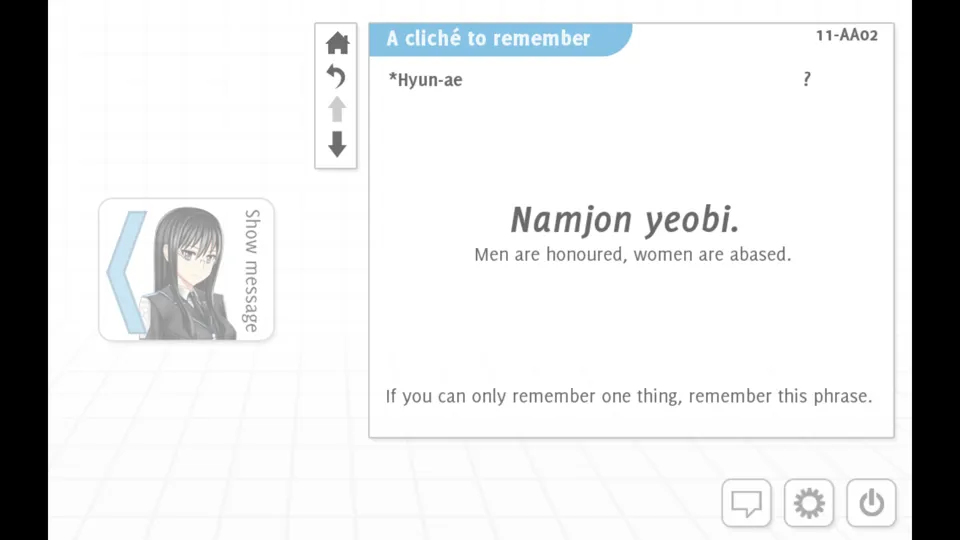 A useful note for the rest of this review
A useful note for the rest of this review
I’m going to spoil something for you. There is no answer to why the Mugunghwa is a 15th century Korean society. That’s not the point. There are instead two points Analogue is making, one more successfully than the other.
Analogue is a deeply feminist game. Though its story is set in a deeply patriarchal society, it is not the men’s stories it centers. Instead, the majority of the stories that the player reads are women’s stories. They are stories of women surviving and thriving, of their heartbreaks and loves, of finding themselves in a society that views them as nothing. I was reminded of “The Handmaid’s Tale” while playing. The women of the Mugunghwa, much like those of Gilead, are diverse in their views of their position and lot in life. Some choose to accept it, some choose to thrive within it, and some choose to fight back. Each, however, chooses to approach the society in their own unique and deeply human way.
Though this random snippets of poetry and gossip don’t necessarily help the investigator understand what happened to the Mugunghwa in a direct way - and indeed, more goal-oriented players might find the sheer number of stories distracting - they do build the world of the Mugunghwa in a compelling way. It is these stories that I’d argue are the real story of Analogue. It is the stories of women finding triumph in adversity and power in obscurity that are the point. It is a form of historical revisionism, of pointing out that, despite being erased from the narrative, women have and always will be there, a fundamental part of shaping the world, whether they are acknowledged to have done so or not.
This is not the first time a story like this has been told, but by being told through a variety of mediums and viewpoints, it is told effectively. The world of the Mugunghwa comes to life, replete with stories and life and with a context in which its inevitable end can be truly understood.
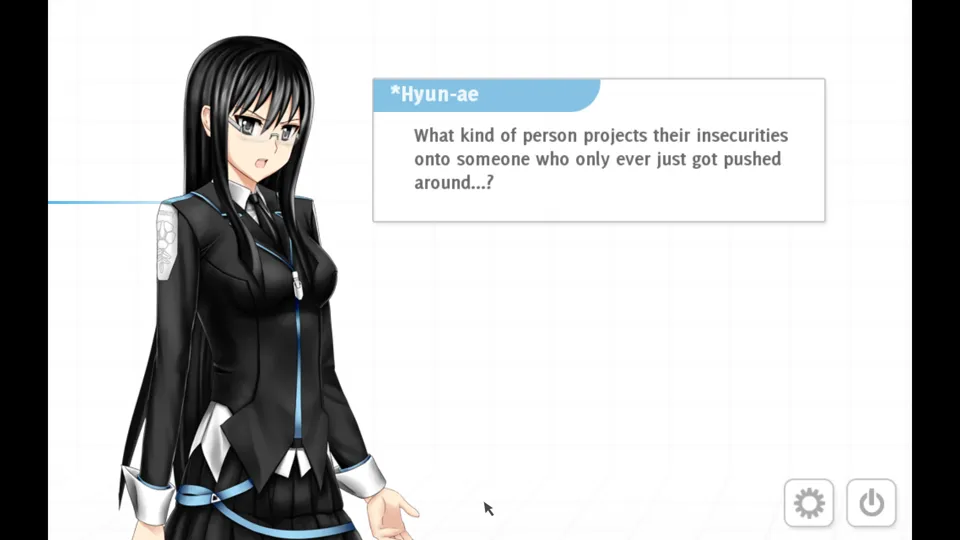 A screenshot from Analogue
A screenshot from Analogue
The second story Analogue tells is less the story of the Mugunghwa and its society as a whole, and more the story of one individual person within it. The Pale Bride is a girl awoken from cryosleep and thrust into this society, much to her confusion and chagrin. Without spoiling the story, it’s in the Pale Bride’s life story that the investigator can eventually find their answers as to what happened to the Mugunghwa .
This also feels like the weaker of the two stories. The horror of the world of the Mugunghwa is already evident by the time the investigator really gets into the Pale Bride’s story. When the writing consistently re-emphasises the differences between the world the Pale Bride went to sleep in and the one she woke up in, it feels as though the writing is repeating what’s already abundantly clear. The Pale Bride’s story is also told through the lens of a teenager which, while potentially compelling, can also come off as whiny rather than complementing the writing that already exists. When the story winds to its conclusion, the same sense of horror that has pervaded all the stories is still there, but without adding anything new. The only difference is that we see how the Pale Bride’s story plays out, while others are left to the imagination.
Given that it’s this second story that is ultimately the game’s main story, it is a bit disappointing in its simplicity. The resolution to the mystery is an unsatisfying one, as is the gameplay leading up to it. Throughout the game, the focus is on reading, asking and answering questions, and getting absorbed in the narrative; however, the game abruptly shifts to a timed challenge once enough of the story has been revealed. It’s a jarring shift that doesn’t add to the story, and only serves to force an ending. A game with a world as interesting as this one deserves better than a shoehorned-in action scene.
The strength of Analogue is ultimately its world-building and how it chooses to tell a feminist story in a deeply patriarchal world. I enjoyed the game, not for the Pale Bride, but for all the small bits of gossip, poetry, and nuance in a world of forgotten and unnamed women. Indeed, the game would have been stronger had it stayed in their world, telling their stories, and letting the true horror and triumph mingle together in a complex and living society.
Developer: Love Conquers All Games
Genre: Visual Novel
Year: 2012
Country: Canada
Language: English
Play Time: 2 Hours
Youtube:
